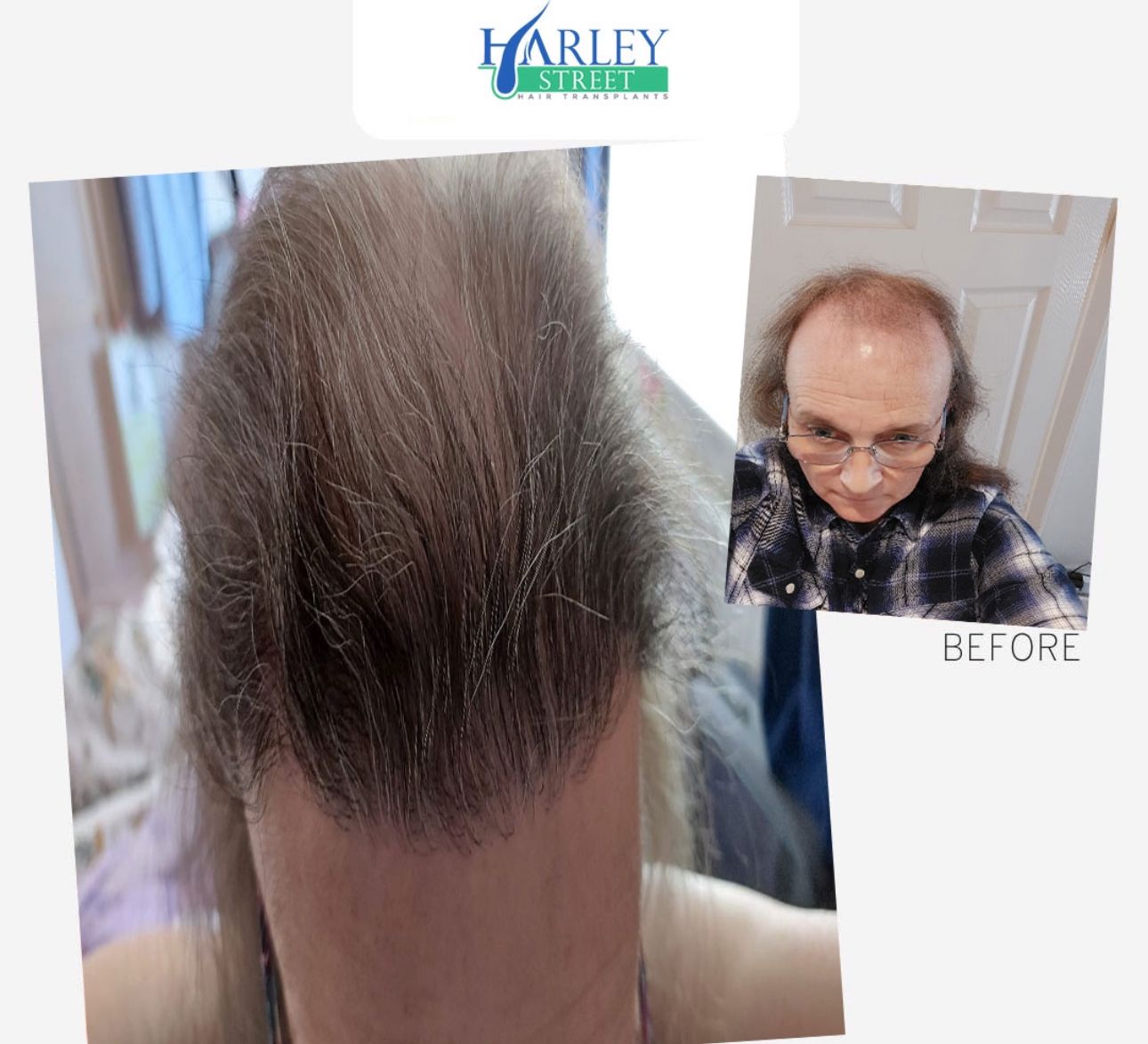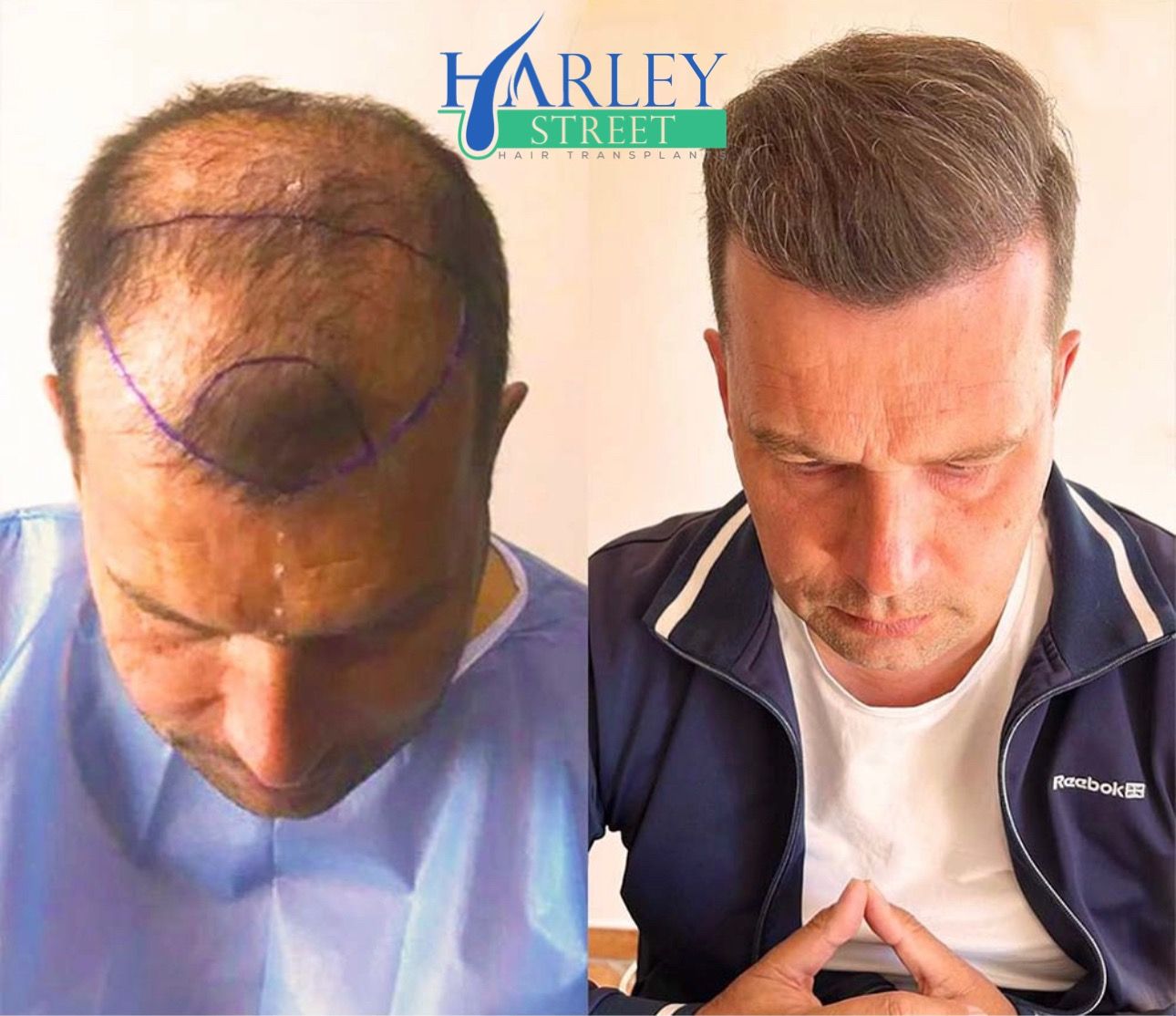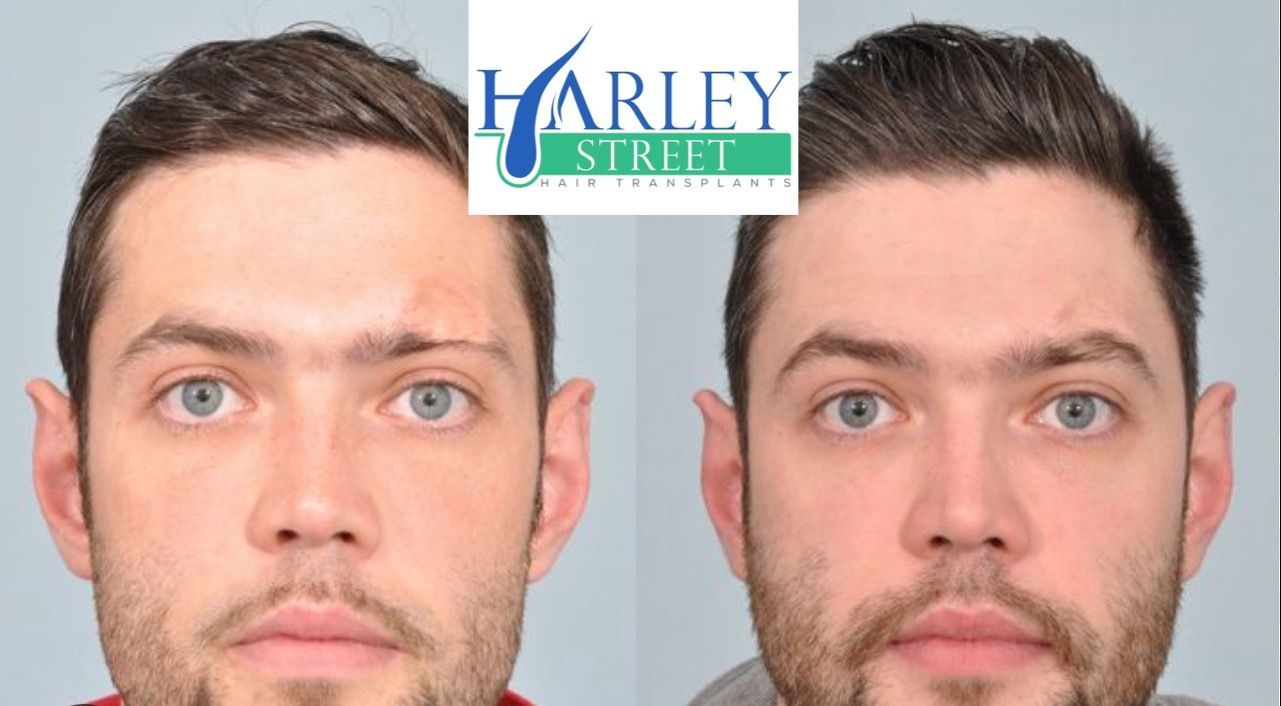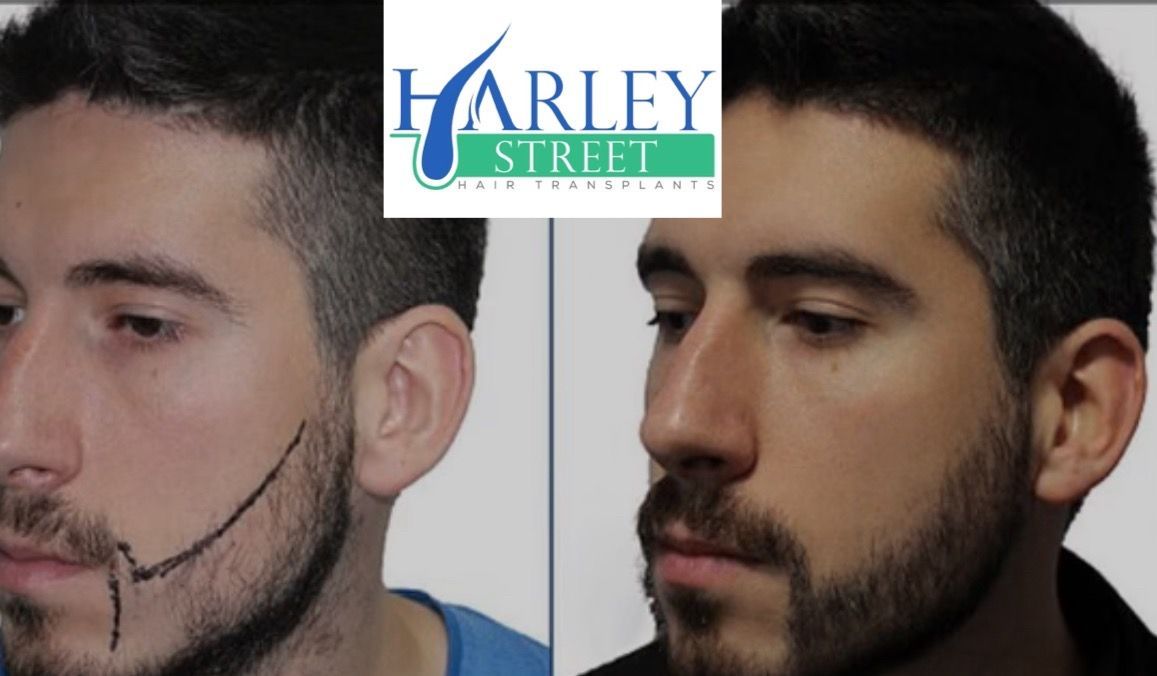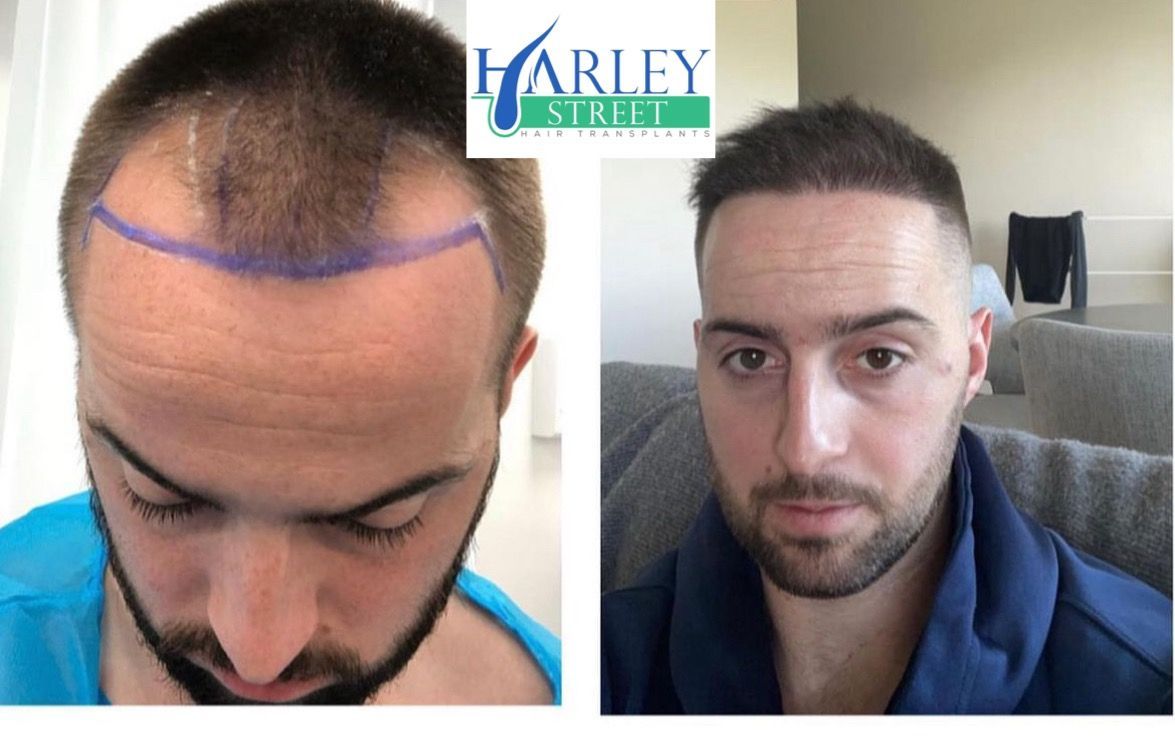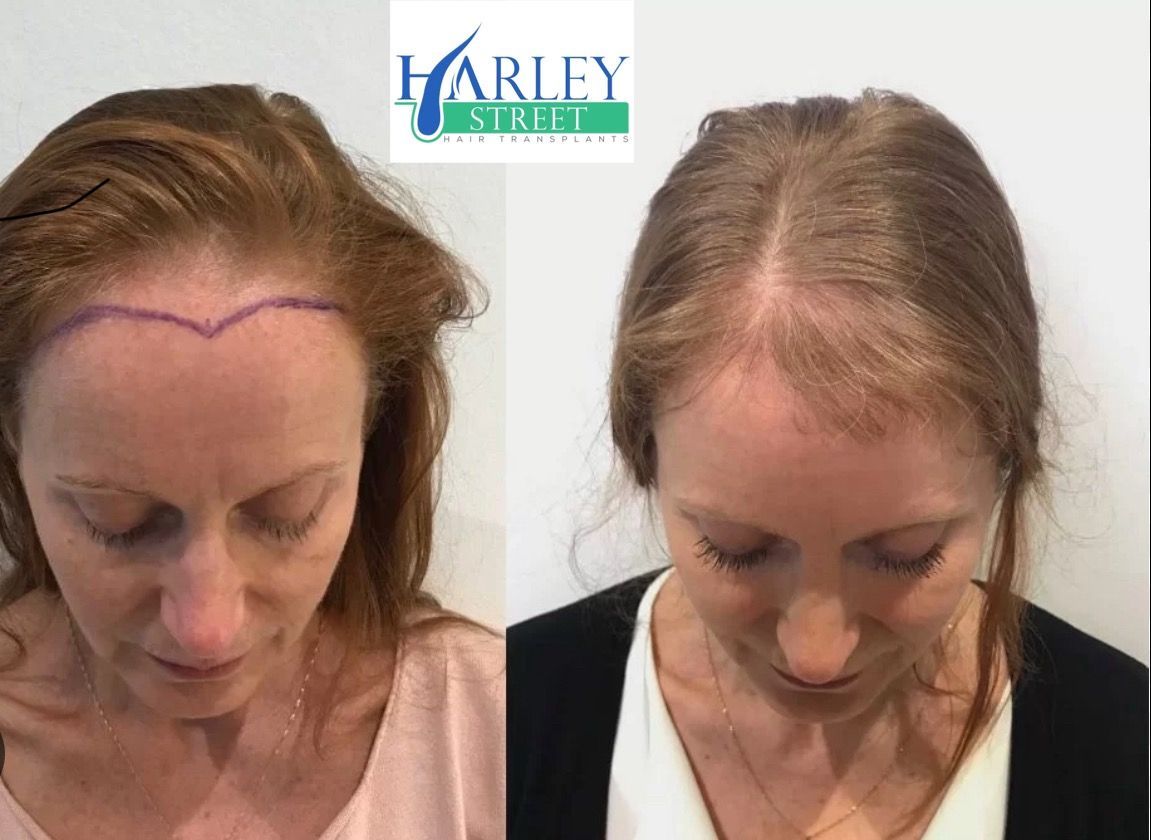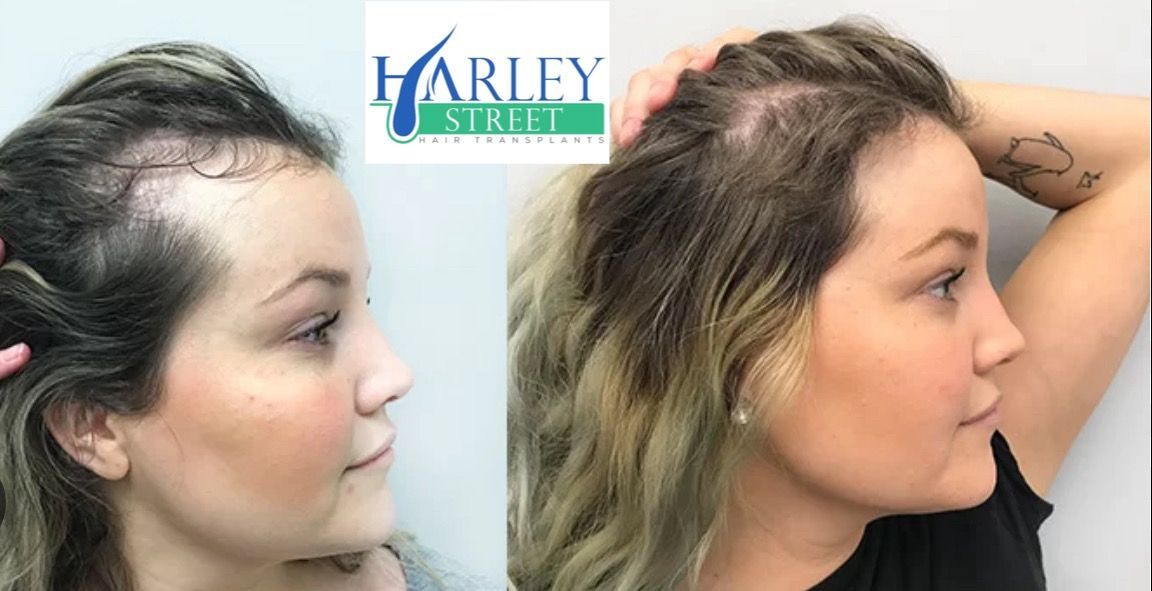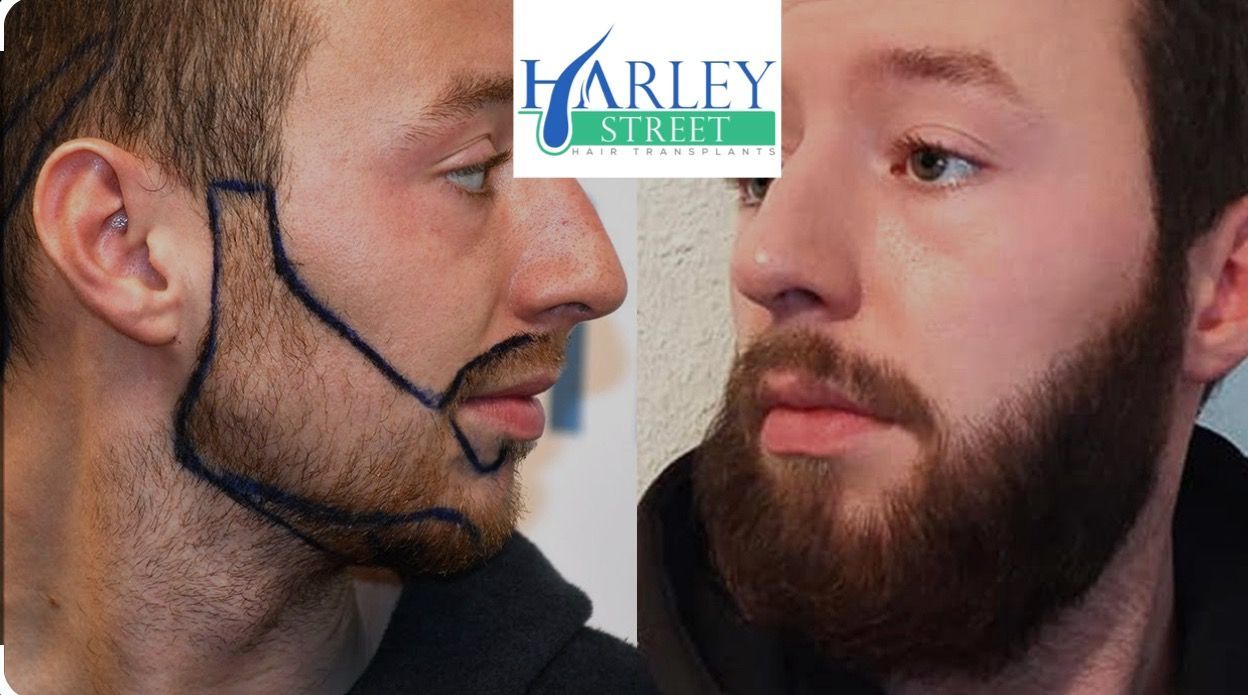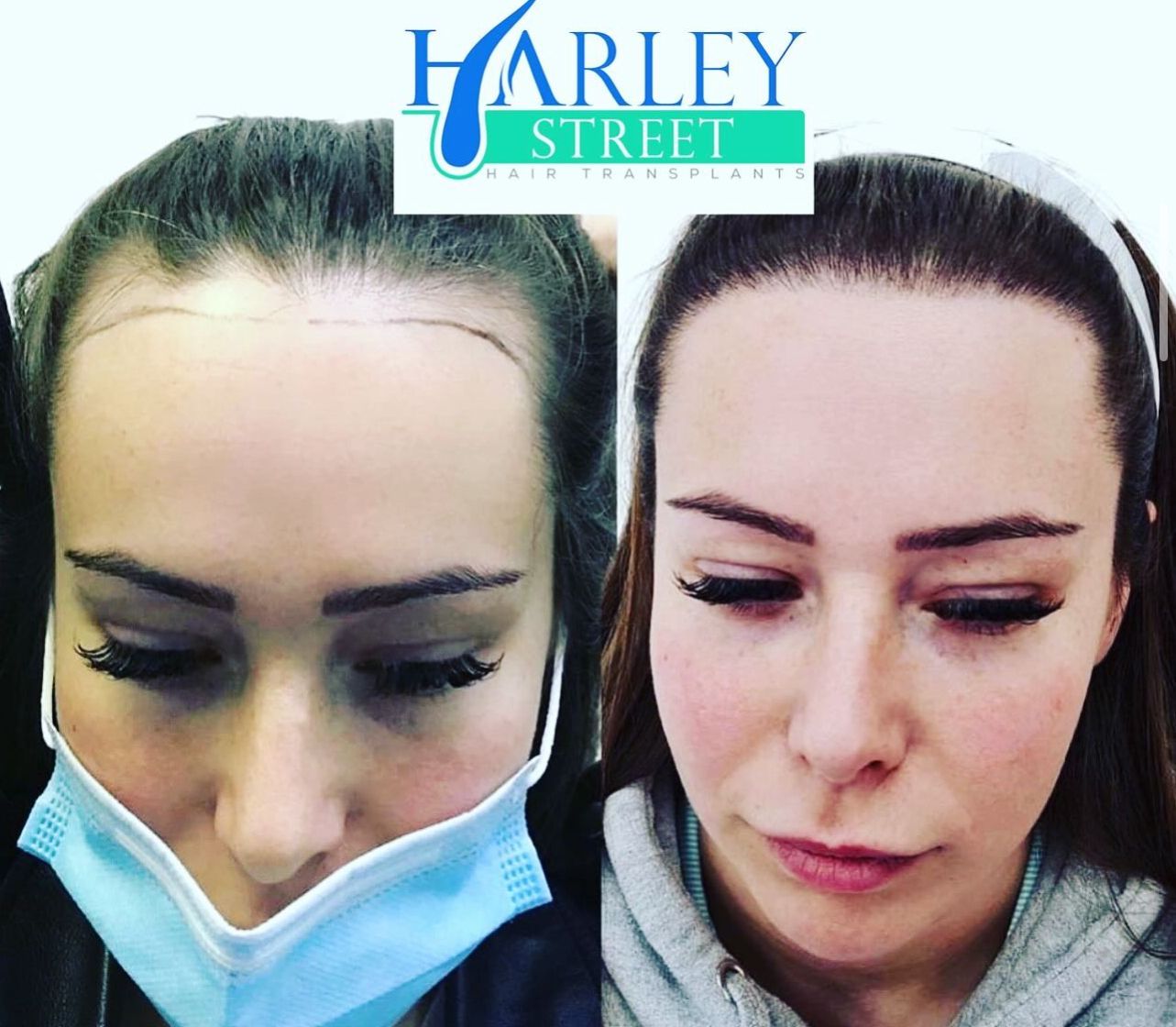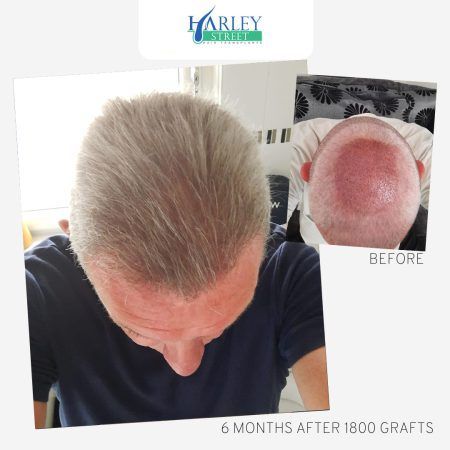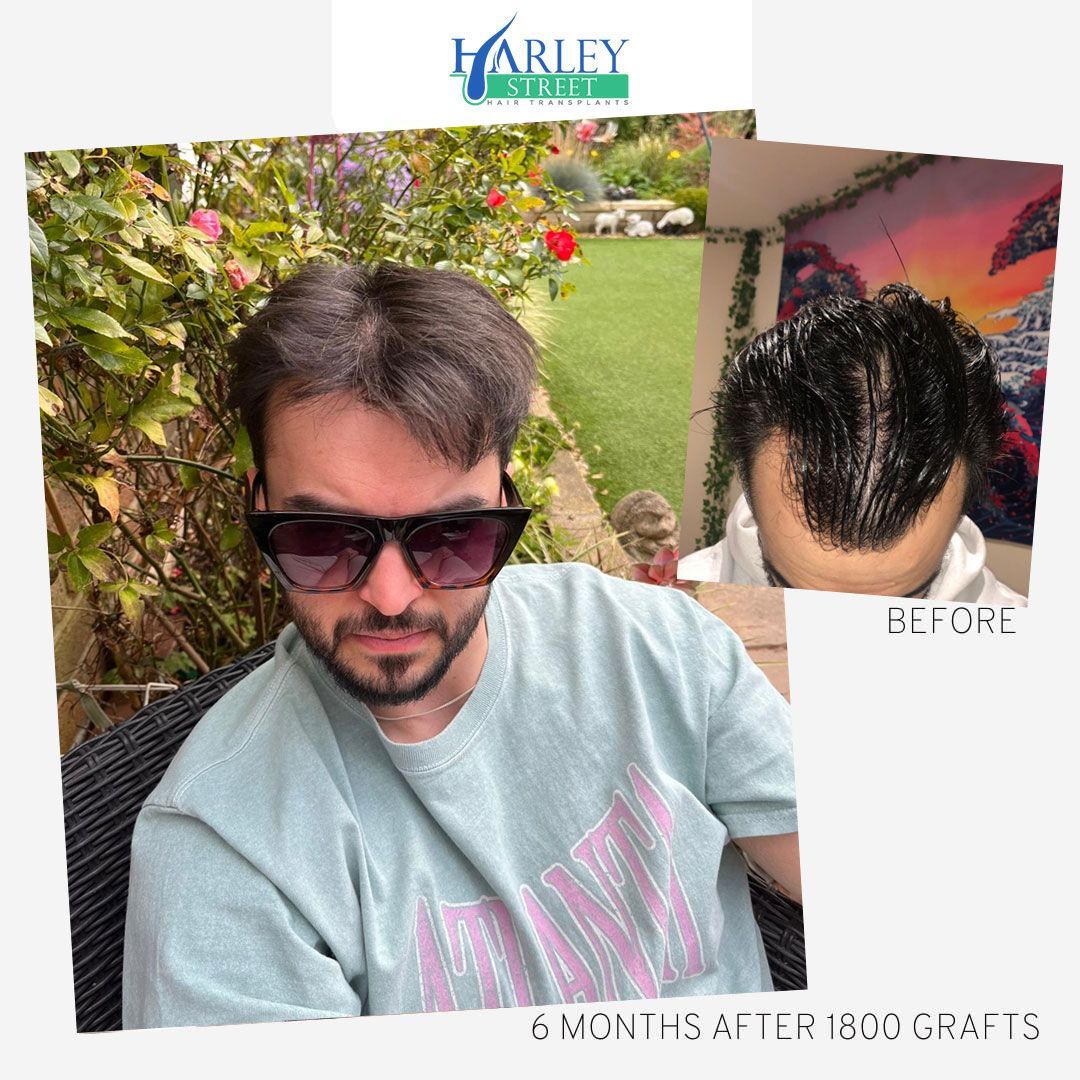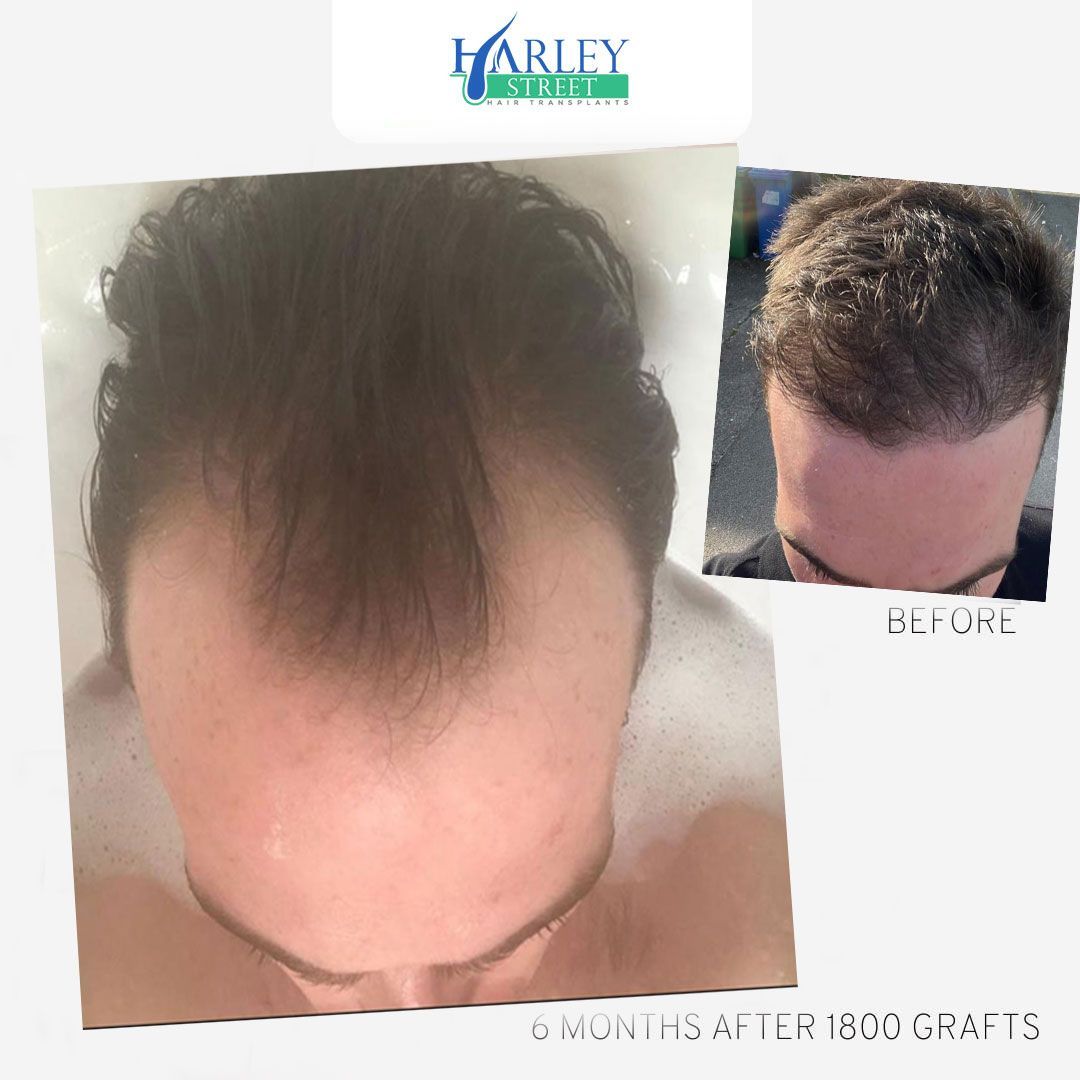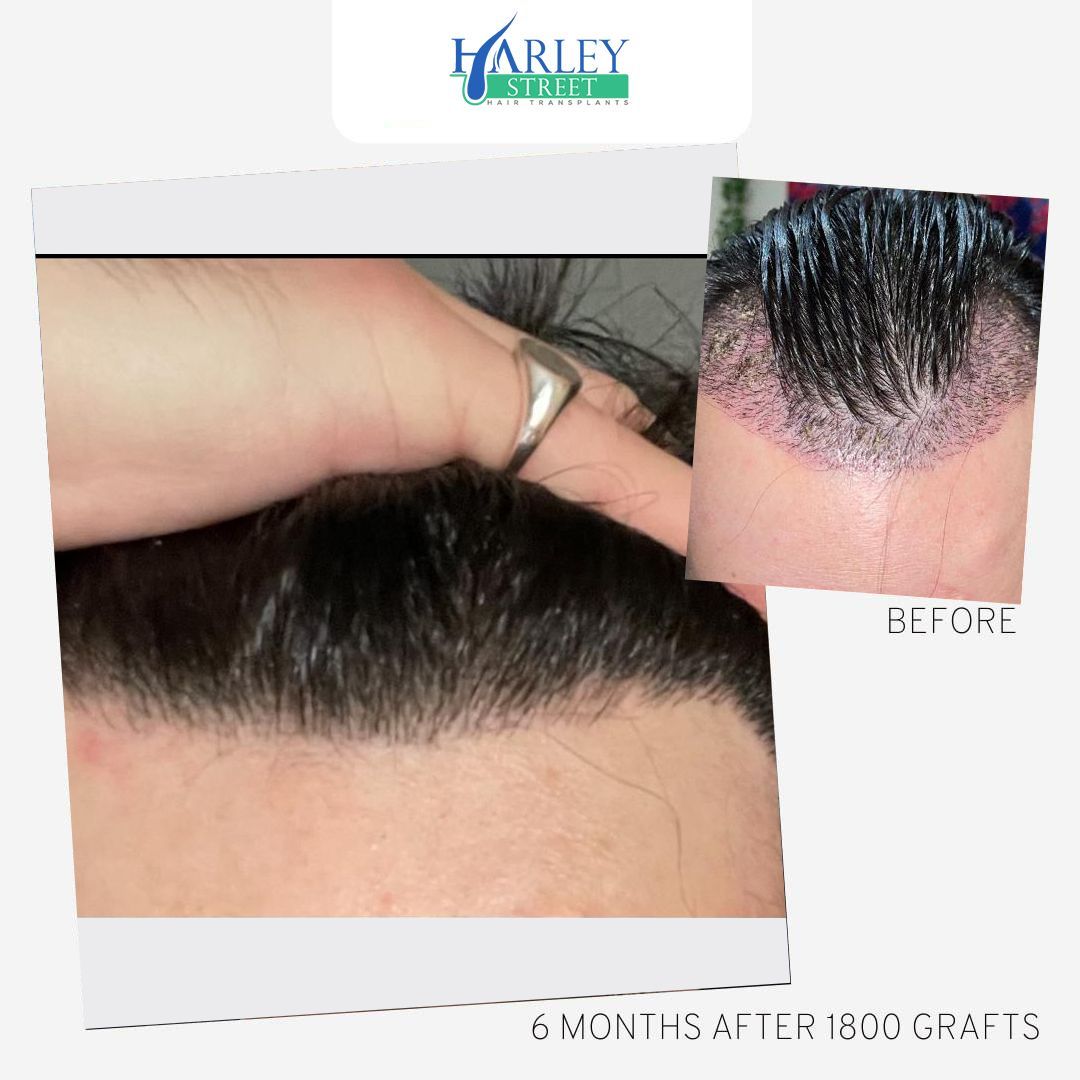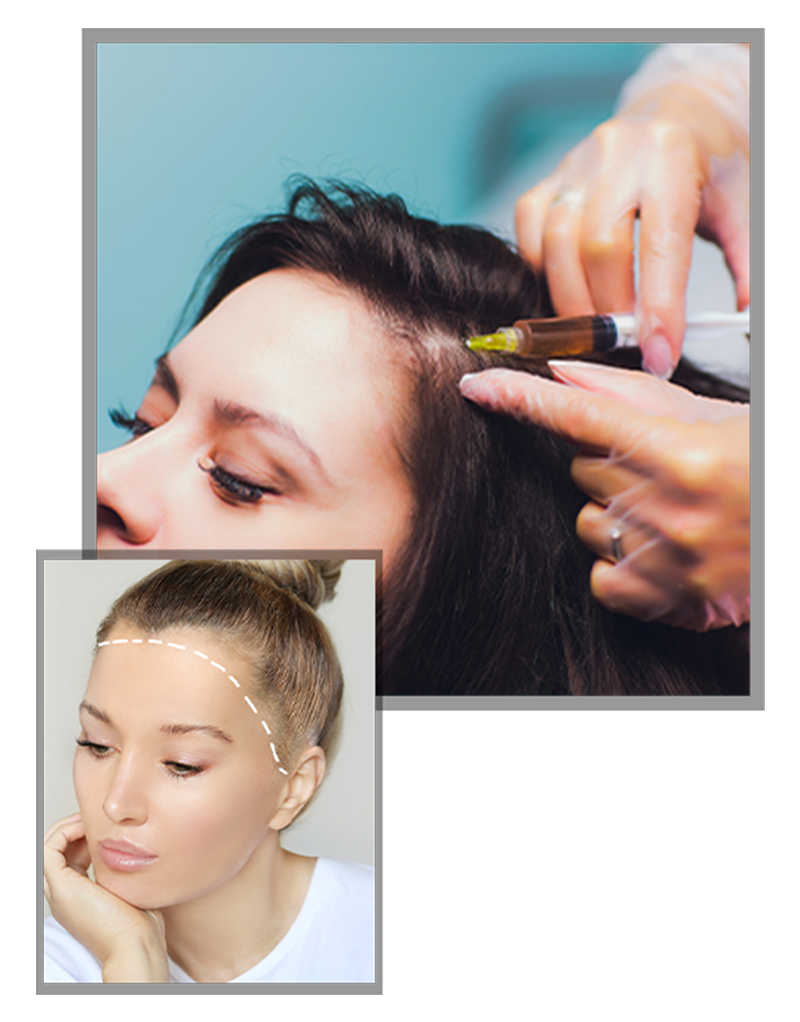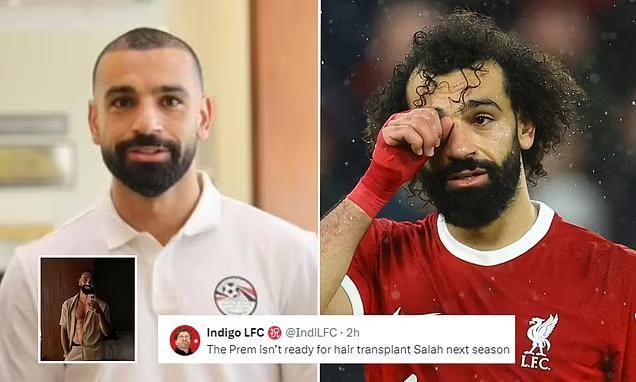We Welcome You to
Hair Transplant London
Harley
Street
Taking care of all your hair needs since 2013.
Before And After Hair Transformations
CHECK OUT OUR HAIR TRANSPLANT SURGEONS IN ACTION
Hair Transplants London
Welcome to Harley Street Hair Transplant London, the leading provider of advanced hair restoration treatments in the heart of London's prestigious Harley Street. Our team of highly skilled and experienced hair transplant specialists is dedicated to providing you with the best possible results using the latest and most innovative techniques in hair restoration.
We understand that hair loss can be a difficult and emotional experience for both men and women, and we are here to help you achieve your desired look with a range of personalised treatments tailored to your individual needs. From FUE (follicular unit extraction) and FUT (follicular unit transplantation) hair transplants to non-surgical treatments, we offer a variety of options to help you restore your hairline, boost your confidence, and regain your self-esteem.
At Harley Street Hair Transplant London, we pride ourselves on delivering exceptional results with minimal downtime and maximum patient comfort. Our state-of-the-art clinic is equipped with the latest technology and our team of experts is committed to ensuring that your experience is as comfortable and stress-free as possible.
Whether you are considering a hair transplant for the first time or have already undergone a procedure elsewhere, we invite you to explore our website and learn more about our services. We are confident that we can help you achieve the look you have always wanted and look forward to helping you on your hair restoration journey.
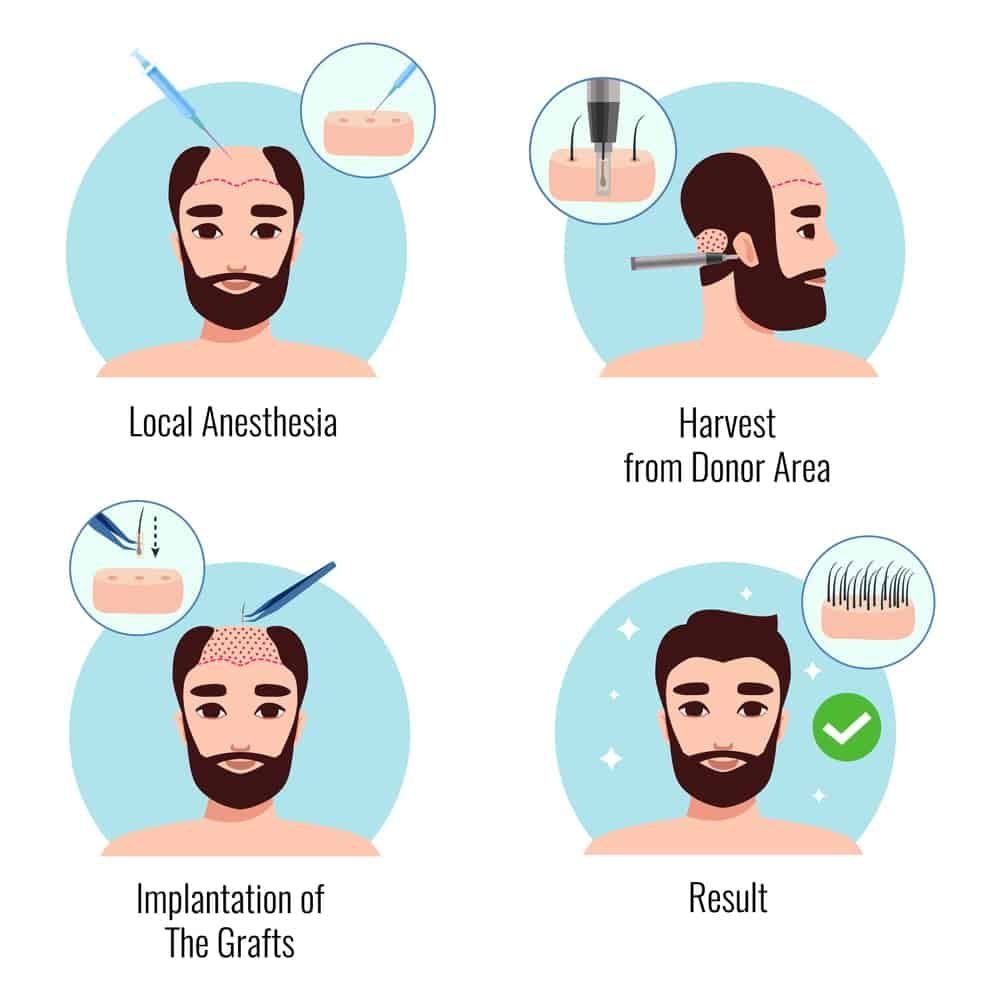
What is a hair transplant?
A hair transplant is a surgical procedure that involves moving hair follicles from one part of the body (usually the back or sides of the head) to another part of the body that is balding or experiencing hair thinning (usually the top or front of the head). The goal of a hair transplant is to restore hair growth in areas that have experienced hair loss due to genetics, injury, or other factors.
There are two main methods for performing hair transplants: Follicular Unit Extraction (FUE) and Follicular Unit Transplantation (FUT). In the FUE method, individual hair follicles are removed one at a time from the donor area and transplanted to the recipient area. In the FUT method, a strip of skin is removed from the donor area and then dissected into individual follicles that are transplanted to the recipient area.
Hair transplants are typically performed under local anesthesia and are generally considered safe and effective. The results of a hair transplant can take several months to become fully visible, and multiple sessions may be required to achieve the desired level of hair density. It is important to consult with a qualified hair transplant surgeon to determine whether you are a good candidate for the procedure and to discuss the risks and benefits.
What are the benefits of having a hair transplant?
If you are suffering from hair loss, then there are several benefits of having a hair transplant, including improved appearance, permanent results, low maintenance, improved hair density, natural-looking results, and cost-effectiveness.
At Harley Street London, we know that hair loss can have a significant impact on a person's self-esteem and confidence, and hair transplant surgery can help restore a fuller, more natural-looking head of hair, boosting self-confidence. Hair transplant surgery provides permanent results, unlike other hair loss treatments that may only provide temporary relief. Transplanted hair requires no special care or maintenance, making it a hassle-free solution for hair loss. Hair transplant surgery can provide a higher hair density than other hair loss treatments, making it an ideal option for patients with advanced hair loss. With the latest FUE and FUT techniques, hair transplant surgery can provide natural-looking results that are virtually undetectable. Although the initial cost of a hair transplant may be higher than other hair loss treatments, it is a cost-effective solution in the long run as it provides permanent results and requires no ongoing maintenance or replacement.
Are hair transplants effective?
Hair transplants have proven to have up to a 95% success rate and can be an effective method for restoring hair in individuals experiencing hair loss or thinning. When performed by skilled and experienced surgeons, hair transplants have shown high success rates in terms of hair growth and patient satisfaction. The transplanted hair follicles have the potential to grow and produce natural-looking hair in the recipient area.
Hair transplants aim to create a natural appearance, with the transplanted hair blending seamlessly with existing hair. When performed with precision and attention to detail, the results can be remarkably natural-looking. Hair transplants can significantly improve hair density in areas affected by hair loss or thinning. The procedure involves transplanting healthy hair follicles from donor areas to the recipient area, effectively filling in bald or thinning spots.
It is now commonly accepted that hair transplants are a long-term solution for hair loss. The transplanted hair follicles are typically permanent and continue to grow hair for a lifetime. However, it's important to note that the natural aging process and potential ongoing hair loss in non-transplanted areas may require additional procedures or maintenance to maintain a consistent look over time.
Numerous studies and patient surveys indicate a high level of satisfaction among individuals who have undergone hair transplant procedures. Patients often report improvements in self-esteem, confidence, and overall quality of life following successful hair restoration.
If you are considering a hair transplant, it's essential to consult with a qualified hair transplant specialist who can evaluate your individual circumstances and provide more specific information regarding the effectiveness and expected outcomes of a hair transplant procedure. They can assess factors such as the extent of hair loss, the quality of donor hair, and the suitability of different techniques to determine the most appropriate treatment plan for you.
Leading the way for Hair Transplants in London
Offering the latest hair restoration procedures at our CQC registered clinics in London and all over the UK at Harley Street Hair Transplants. If you are looking for FUE hair surgery or the best hair transplant in the UK, you are welcome to contact us at
02080881333, visit our clinics or fill out our online form.
Why London is an ideal location for a hair transplant
The recent increase in popularity of hair transplant surgery has given rise to clinics popping up all over the UK and abroad. Nevertheless, London remains one of the most esteemed and trusted places to undertake a hair transplant. London is home to world-class medical facilities and renowned hair transplant clinics. The city has a strong reputation for providing excellent healthcare services, including hair restoration procedures. Surgeons in London often have extensive experience, training, and expertise in performing hair transplants, ensuring high-quality care and optimal results.
London attracts highly skilled and experienced hair transplant surgeons from around the world. Many of these surgeons have undergone specialised training and are at the forefront of advancements in hair transplant techniques. Choosing a reputable surgeon in London can provide access to top-tier professionals who stay updated with the latest industry developments.
London's multicultural and diverse population contributes to a rich patient base for hair transplants. This diversity means that hair transplant specialists in London have extensive experience working with various hair types, including different textures and ethnic backgrounds. At Harley Street Hair Transplant London, we understand the unique considerations and techniques required for individuals with diverse hair characteristics.
London is a hub for medical advancements and innovation. Hair transplant clinics in the city often utilise state-of-the-art equipment, technology, and techniques. This includes advanced follicular unit extraction (FUE) methods, robotic-assisted procedures, and other cutting-edge technologies that enhance the precision, efficiency, and overall outcomes of hair transplants.
London's international connectivity and transportation infrastructure make it easily accessible for individuals seeking hair transplant procedures. The city is well-served by major airports and has excellent transport links, making it convenient for both domestic and international patients to travel to and from London for their hair transplant appointments.
With strict clinical standards to work to, London's reputable hair transplant clinics typically offer comprehensive aftercare services. These services may include post-operative check-ups, follow-up consultations, and ongoing support to ensure the best possible recovery and long-term success of the transplant.
It's important to note that while London offers many advantages for hair transplants, it's still crucial to research and select a reputable clinic or surgeon based on their qualifications, experience, patient reviews, and success rates. Conducting thorough research and scheduling consultations will help you make an informed decision about the right hair transplant specialist and clinic in London for your specific needs.
At Harley Street Hair Transplant London, we are considered one of the leading hair loss clinics in the capital. Our experience, quality and unrivalled patient aftercare make us a great choice if you are looking for a hair transplant in London.
To learn more and to schedule a free consultation, call us today!
DHI Hair Transplant in London – putting your hair at its best
Why Choose Us
For many people, losing their hair may be an emotionally painful experience. However, there are solutions out there that can help you regain your appearance, including hair transplants. And while many medical professionals in London offer hair transplant treatments, Harley Street Hair Transplants may provide individuals with hair loss the most realistic-looking and durable outcomes. Our specialists are always available to assist you and guide you throughout your hair transplant journey. Because of our exceptional work, we are known to be the hair restoration specialist in the UK with the best hair loss treatment for females in the UK.
To maintain facial framing and create a natural hairline that enhances the individual's facial features, we work around the person's particular facial traits. These techniques allow us to stand out from our competitors and give our clients a smooth experience. In addition, our hair transplant specialist will ensure our clients are happy with the results.
Harley Street Hair Transplants takes great pride in aiding people who are dealing with hair loss. So it is a treat to us when we see our clients regain their confidence!
Testimonials By Our Patients
SEE WHAT OUR CUSTOMERS SAY
We aim to build long-lasting relationships with our Harley Street Hair Transplants customers. To implement this goal, we keep in touch with our patients throughout the procedure and even after. We are confident to say Harley Street offers the best hair transplant treatment across the UK.
The feedback from our clients feels like a pat on the back! They build our confidence and always tell us their reviews. Below are a few testimonials from our clients.
Book Your Free Consultation Today
The Process
At Harley Street Hair Transplants, we give individual attention to each patient. We ensure that each client is given treatment according to the intensity of hair loss. Our team of specialists is well-aware and knowledgeable about every detail of different hair transformation processes. Moreover, our staff has years of experience and highly trained members. So be sure of the most reliable hair transformations with us. You are in safe hands!

Initial Enquiry
Our patients can contact us through our number or email. However, you can also reach out to us through our social media handles or website. Furthermore, for a hassle-free experience, we offer free consultations to our patients regarding whether they meet the treatment requirements or not. After this initial stage, we proceed further.

Consultation
We move to the consultation stage if our patient meets the treatment requirements. We offer both face-to-face and virtual consultations. However, during and after COVID, the majority of the consultation sessions happen over Zoom, Skype, and Facebook Messenger. In this session, our experts decide which type of hair loss treatment suits the client by assessing the head and doner areas to the areas that require the treatment.

Treatment Options
After the consultation stage, we move to the phase of deciding the treatment options. Our clients are given transparent details of the pricing of the best hair loss treatment for females. All the mandatory documentation is mailed to our clients, and we give them the liberty of choosing the dates they prefer for their hair transplant treatment. Our team knows this is a big decision in your life, but we promise to guide you throughout. We offer the most natural hair transplant surgery in London, and we take pride in that.
Searching for a Hair Transplant in London?
Hair loss can be a distressing and difficult experience for many people, but fortunately, hair transplant surgery has become an increasingly popular and effective solution to this problem. If you are considering a hair transplant in London, you may be wondering why you should choose Harley Street Hair Transplants.
Here are some reasons why we believe we are the best choice for your hair transplant surgery in the Capital:
Highly Qualified and Experienced Surgeons
At Harley Street Hair Transplants, we are proud to have some of the most experienced and qualified hair transplant surgeons in London. All of our surgeons have many years of experience in hair restoration and have completed thousands of successful hair transplant surgeries.
Cutting-Edge Techniques and Technology
We use the latest and most advanced hair transplant techniques and technology to ensure that our patients achieve the best possible results. Our surgeons are skilled in both FUE (Follicular Unit Extraction) and FUT (Follicular Unit Transplantation) methods, and we use state-of-the-art equipment to ensure precision and accuracy during the procedure.
Personalised Treatment Plans
We understand that every patient's hair loss situation is unique, which is why we provide personalised treatment plans tailored to each individual. Our surgeons will work closely with you to understand your needs and goals, and develop a customised treatment plan that meets your specific requirements.
Exceptional Patient Care and Support
At Harley Street Hair Transplants, we pride ourselves on providing exceptional patient care and support throughout the entire hair transplant process. We will guide you through every step of the procedure, from your initial consultation to your post-surgery follow-up appointments. Our friendly and knowledgeable team is always available to answer any questions or concerns you may have.
Affordable and Transparent Pricing
We believe that everyone should have access to quality hair transplant surgery, which is why we offer affordable and transparent pricing for our services. We provide a detailed breakdown of all costs upfront, so there are no surprises or hidden fees.
If you are looking for a reliable and experienced hair transplant clinic in London, look no further than Harley Street Hair Transplants. Our team of skilled surgeons, cutting-edge technology, personalised treatment plans, exceptional patient care, and transparent pricing make us the best choice for your hair restoration needs.
THE REASONS WHY OUR PATIENTS BELIEVE IN US:
We Have CQC-Registered Clinics All Over The UK
All Our Surgeons Are GMC Registered
We Offer Free Consultations
Top-Notch Quality Results
Know how we can help deal with your excessive hair loss!
Meet our Hair Transplant Clinic's principal hair transplant surgeon, Dr. Joy Kumari (GMC No: 6106958).
The FUE/DHI Specialist Clinic is renowned for the best FUE/DHI hair Transplant in London. Our Clinic has developed the best FUE/DHI method extensively to provide very high-quality, comfortable, natural and reliable FUE/DHI results for men and women.
Our team is led by experienced FUE/DHI hair transplant surgeon Dr J Kumari. Dr J Kumari completed her postgraduate training in dermatology from Kings College, London, and worked in the NHS, specializing in general and aesthetic dermatology, before starting the Harley Street Hair Transplant Clinic.
She is highly experienced in Dermatology, as she has also completed her Masters in Dermatology (MSc) from the University of Hertfordshire UK.
WHAT WE’RE OFFERING
Our Services Include
DHI Hair Transplant
Direct hair implantation (DHI) is the latest hair transplant method used by surgeons to combat hair thinning and hair loss.
Nonsurgical Hair Loss Solutions
Time is taken per session: ~20 mins Cost: £395 for 1 session.
Best for: Thickening hair and some regrowth
Crown Hair Transplant
Baldness is a problem that can affect all areas of the face and head.
Harley Street Hair Transplant London
OUR SERVICES AT A GLANCE
FUE HAIR TRANSPLANT:
Follicular Unit Extraction (FUE) is a modern hair transplant technique that involves the extraction of individual hair follicles from the donor area using a specialized micro-punch tool. The follicles are then transplanted to the recipient area, where they grow and create natural-looking hair growth. FUE is a minimally invasive procedure that leaves no visible scarring and has a relatively quick recovery time. It is an excellent option for patients who have a small area of hair loss or who prefer a shorter haircut style. At our clinic, we have highly skilled and experienced FUE surgeons who use the latest technology and techniques to ensure the best possible outcomes for our patients.
FUT HAIR TRANSPLANT:
Follicular Unit Transplantation (FUT) is a traditional hair transplant technique that involves removing a strip of skin from the donor area, which is then dissected into individual follicular units for transplantation. The advantage of FUT is that it allows for the transplantation of a larger number of grafts in a single session, making it a suitable option for patients with more significant hair loss. FUT does leave a linear scar in the donor area, but it can typically be covered with longer hair. Our experienced FUT surgeons use advanced techniques to minimize scarring and ensure the best possible results. We also provide comprehensive aftercare instructions to help our patients achieve a successful recovery.
BEARD HAIR TRANSPLANT:
Beard hair transplants are a specialized form of hair transplant surgery that involves transplanting hair follicles from the scalp to the beard area to achieve a fuller, thicker beard. At our London Hair Transplant clinic, we have experienced surgeons who are skilled in performing beard hair transplants using both FUE and FUT techniques. We work closely with our patients to understand their unique needs and goals, and create a customized treatment plan to achieve the desired outcome. Beard hair transplants typically involve the transplantation of several hundred hair follicles and can take several hours to complete. Our team provides comprehensive aftercare instructions to ensure the best possible recovery and long-term results for our patients.
EYEBROW HAIR TRANSPLANTS:
Eyebrow hair transplants are a specialised form of hair transplant surgery that involves transplanting hair follicles from the scalp to the eyebrow area to create a fuller, more defined eyebrow. This procedure is an excellent option for people with thinning or patchy eyebrows due to genetics, aging, or over-plucking. At our London hair transplant clinic, our experienced surgeons use the latest FUE techniques to ensure the best possible outcomes for our patients. The procedure is performed under local anaesthesia and involves the transplantation of several hundred hair follicles. The recovery time for eyebrow hair transplants is relatively short, and patients can typically return to their regular activities within a few days. Our team provides comprehensive aftercare instructions to ensure a successful recovery and long-term results for our patients.
DHI HAIR TRANSPLANT
Direct Hair Implantation (DHI) is an advanced hair transplant technique that uses a specialised tool to extract and transplant hair follicles in a single step. This method allows for a higher density of hair follicles to be transplanted in a single session, resulting in a more natural-looking hairline. At our clinic, we have experienced DHI surgeons who use the latest technology and techniques to ensure the best possible outcomes for our patients. The procedure is performed under local anaesthesia and involves minimal downtime. Our team provides comprehensive aftercare instructions to ensure a successful recovery and long-term results for our patients. DHI hair transplants are an excellent option for patients who want to achieve a natural-looking hairline and fuller hair density in a single session.
CRWON HAIR TRANSPLANTS:
Crown hair transplants are a specialised form of hair transplant surgery that involves transplanting hair follicles to the crown of the head to address balding or thinning in that area. At our clinic, we have experienced surgeons who use the latest FUE and FUT techniques to ensure the best possible outcomes for our patients. The procedure is performed under local anesthesia and involves the transplantation of several hundred hair follicles. The recovery time for crown hair transplants is relatively short, and patients can typically return to their regular activities within a few days. Our team provides comprehensive aftercare instructions to ensure a successful recovery and long-term results for our patients. Crown hair transplants are an excellent option for patients who want to restore their hair density and achieve a fuller head of hair.
NON SURGICAL HAIR LOSS TREATMENTS:
Our non-surgical hair restoration treatments involve injecting a concentrated solution of platelets into the scalp to promote hair growth. The solution is derived from the patient's own blood, which is processed in a specialised centrifuge to separate and concentrate the platelets. At our clinic, we use advanced techniques to ensure the best possible outcomes for our patients. Non surgical hair loss treatment is a safe and effective treatment that can help stimulate hair growth and improve hair density. The procedure is performed in-office and involves minimal downtime. Our team provides comprehensive aftercare instructions to ensure a successful recovery and long-term results for our patients. This type of treatment is an excellent option for patients who want to improve the overall health and appearance of their hair without undergoing surgery.
How much does a 2000 graft hair transplant cost
In the UK, the cost of a 2000 graft hair transplant can range from approximately £4,000 to £10,000 or more. However, it's important to note that these figures are just a general estimate and can vary depending on factors such as the clinic or surgeon's expertise, location, additional services provided, and individual requirements.
At Harley Street Hair Transplant London, we typically charge £4000 for a 2000 graft hair transplant, although this price varies depending on the individual complexities required in the hair transplant surgery for each patient.
The best way to obtain an accurate cost estimate for a 2000 graft hair transplant is to consult with one of our hair loss surgeons directly. They will assess your specific needs during an initial consultation and provide a personalised quote based on your unique circumstances.
It's advisable to research multiple clinics, compare prices, and consider factors such as the surgeon's experience, reputation, and patient reviews, in addition to the cost, when making a decision. Additionally, inquire about any financing options or offers that may be available to make the procedure more affordable.
OUR CERTIFICATIONS
Harley Street Hair Transplant London Latest News Posts
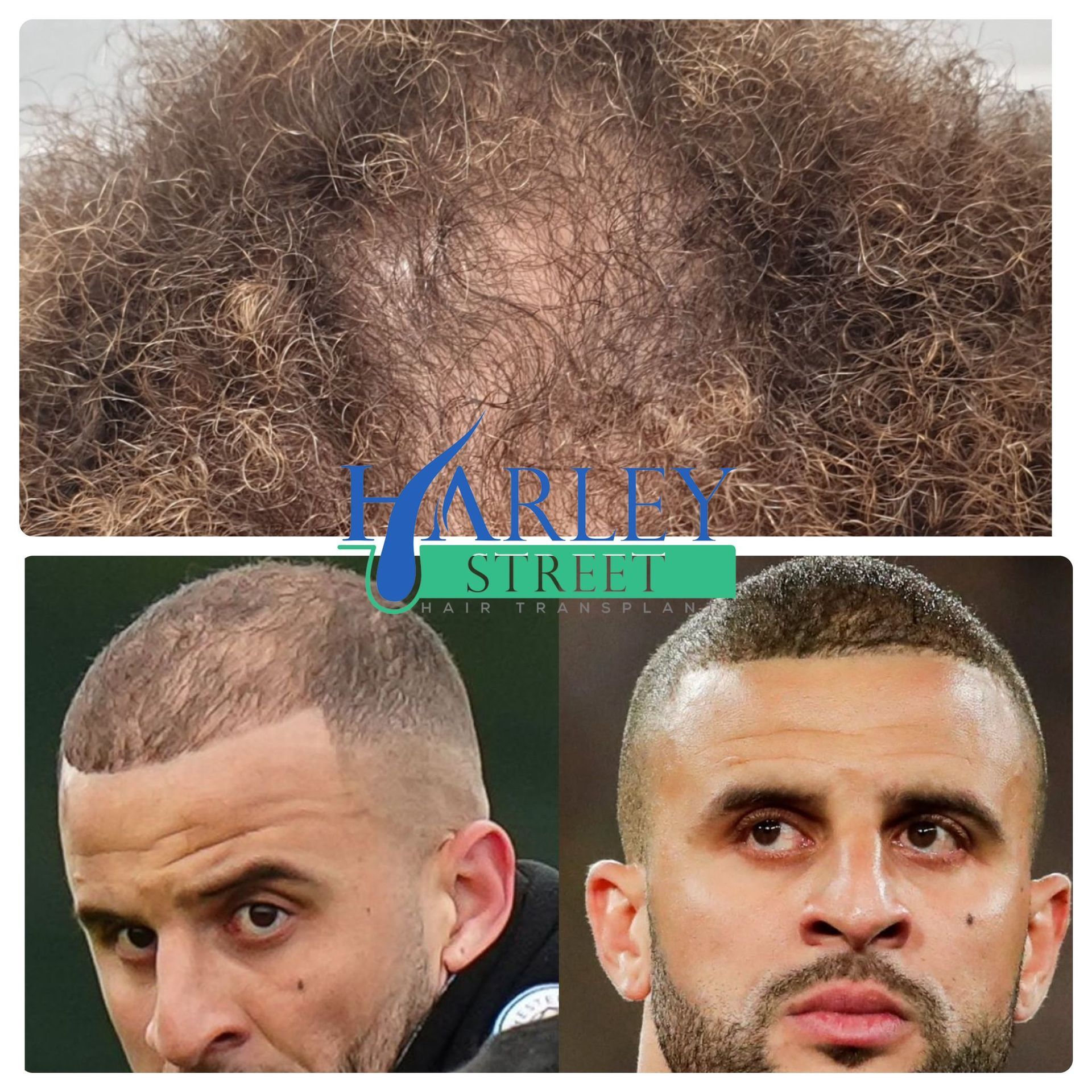
What is Hair Loss?
Hair loss is a condition that affects the scalp, resulting in the loss of hair. It can also affect other areas of the body, such as the face or body, but is most commonly seen on the scalp. Hair loss can be caused by a variety of factors, including genetics, hormonal changes, medical conditions, certain medications, stress, and age. Depending on the underlying cause, hair loss can occur suddenly or gradually, and can range from mild thinning to complete baldness. Hair loss can have a significant impact on a person's self-esteem and confidence, and can affect both men and women.
What causes hair loss in men?
Hair loss in men commonly occurs due to a range of hormonal and genetic factors. Some of the most common reasons behind male hair loss are as follows:
- Genetic Predisposition: The most significant factor contributing to hair loss in men is inherited genes. Male-pattern baldness tends to run in families, suggesting a strong genetic component. If your father, grandfather, or other close male relatives have experienced hair loss, there's a higher chance you may be predisposed to it.
- Androgens and Dihydrotestosterone (DHT): Androgens, specifically dihydrotestosterone (DHT), play a crucial role in male-pattern baldness. DHT is derived from testosterone through an enzyme called 5-alpha-reductase. In individuals with a genetic predisposition, DHT binds to hair follicles, causing them to shrink and produce thinner and shorter hair strands. Eventually, the affected follicles may cease to produce visible hair.
- Hair Follicle Sensitivity: People with male-pattern baldness have hair follicles that are genetically more sensitive to the effects of DHT. When DHT attaches to these follicles, it shortens their growth phase (anagen) and prolongs the resting phase (telogen). Over time, this leads to shorter, finer hair strands and a gradual decrease in hair volume.
- Age: Male-pattern baldness usually starts during adulthood, with the most common age of onset being the late 20s to early 30s. Hair loss tends to progress gradually over the years, resulting in a receding hairline and thinning hair on the crown of the head. However, the rate and extent of hair loss can vary among individuals.
It's important to note that while male-pattern baldness is the most common cause of hair loss in men, other factors such as medical conditions, medications, and lifestyle choices can also contribute to hair loss. If you have concerns about hair loss or want specific advice, it's advisable to consult with a healthcare professional or dermatologist who can evaluate your condition and provide appropriate guidance.
What causes hair loss in women?
Hair loss in females, also known as female pattern hair loss or androgenetic alopecia, can have various causes. Some of the common factors that contribute to hair loss in females include:
- Hormonal Changes: Hormonal imbalances can lead to hair loss. Conditions such as polycystic ovary syndrome (PCOS), menopause, pregnancy, and childbirth can cause fluctuations in hormone levels that disrupt the hair growth cycle.
- Genetics: Genetic factors play a role in female hair loss. If there is a family history of hair loss, especially among female relatives, it increases the likelihood of experiencing hair loss.
- Ageing: Hair naturally becomes thinner and more prone to shedding as individuals age. This is due to the gradual decrease in hair follicle size and the duration of the hair growth cycle.
- Medical Conditions: Certain medical conditions and illnesses can cause hair loss in females. These include thyroid disorders, autoimmune diseases (e.g., alopecia areata), scalp infections, and nutritional deficiencies.
- Stress and Emotional Factors: Emotional or physical stress, trauma, or significant life events can trigger hair loss. This condition, known as telogen effluvium, causes an increased number of hair follicles to enter the resting (telogen) phase, leading to excessive shedding.
- Hairstyling and Hair Treatments: Excessive or improper hairstyling practices, such as tight hairstyles (e.g., ponytails or braids), chemical treatments (e.g., perming or straightening), and frequent use of heat styling tools, can damage the hair shaft and contribute to hair loss.
- Medications and Treatments: Certain medications, including those used for cancer, depression, hypertension, and hormonal imbalances, can have hair loss as a side effect. Additionally, chemotherapy and radiation therapy used in cancer treatment often lead to temporary hair loss.
- Nutritional Deficiencies: Inadequate intake of essential nutrients, particularly iron, zinc, biotin, and vitamins A, D, and E, can impact hair health and contribute to hair loss.
It's important to note that determining the exact cause of hair loss in females often requires a thorough evaluation by a healthcare professional or hair transplant surgeon. They can assess the individual's medical history, conduct diagnostic tests, and recommend appropriate treatment options based on the underlying cause of hair loss.
Does stress cause hair loss?
Stress can contribute to hair loss, but its role is often more related to exacerbating or triggering existing conditions rather than being a direct cause of male-pattern baldness. Stressful events or prolonged periods of high stress can disrupt the normal hair growth cycle, leading to a condition called telogen effluvium. During this condition, a larger number of hair follicles than usual enter the resting phase (telogen) prematurely, causing increased shedding of hair. Telogen effluvium is typically temporary, and hair growth resumes once the underlying stressor is addressed or resolved. Ina ddition, Trichotillomania is a psychological disorder characterszed by the urge to pull out one's hair, including scalp hair. It is often triggered by stress or anxiety and can result in significant hair loss if not addressed.
Stress can also worsen certain hair loss conditions, such as male-pattern baldness (androgenetic alopecia) or alopecia areata. While stress itself may not be the root cause, it can accelerate or intensify hair loss in individuals who are already genetically predisposed to these conditions. As well as the hormonal implications stress can indirectly contribute to hair loss in men by influencing lifestyle choices. For instance, during periods of high stress, individuals may adopt unhealthy coping mechanisms like smoking, excessive alcohol consumption, poor diet, and lack of sleep. These lifestyle factors can impact overall hair health and potentially contribute to hair loss.
If you're experiencing hair loss as a result of stress or have concerns about it, consulting with a hair transplant surgeon can help determine the underlying cause and provide appropriate guidance and treatment options.
What is male pattern baldness?
Male pattern baldness, also known as androgenetic alopecia, is the most common form of hair loss in men. It is a genetic condition that affects up to 50% of men over the age of 50. Male pattern baldness is characterized by a receding hairline and hair loss on the crown of the head, resulting in a horseshoe-shaped hair pattern. The underlying cause of male pattern baldness is believed to be a combination of genetics and hormonal changes. The hormone dihydrotestosterone (DHT) is thought to be a major contributor to male pattern baldness, as it can shrink hair follicles and shorten the hair growth cycle. Male pattern baldness typically progresses gradually over time and can have a significant impact on a man's self-esteem and confidence.
What is female pattern baldness?
Female pattern baldness, also known as androgenetic alopecia, is a common form of hair loss that affects women. It is similar to male pattern baldness, but the pattern and severity of hair loss are different. Female pattern baldness typically causes hair thinning on the top and crown of the scalp, rather than a receding hairline or complete baldness. It is also less common than male pattern baldness, affecting up to 50% of women over the age of 65. The underlying cause of female pattern baldness is believed to be a combination of genetics, hormonal changes, and aging. Like male pattern baldness, the hormone DHT is thought to play a role in female pattern baldness, as it can shrink hair follicles and shorten the hair growth cycle. Female pattern baldness can have a significant impact on a woman's self-esteem and confidence
How our surgeons categorise your hair loss
At our London Hair Transplant clinic, our hair loss surgeons use industry recognised techniques to categorise patient hair loss. Categorising hair loss stages can help to determine the appropriate treatment plan and to track the progression of hair loss over time. The Norwood-Hamilton scale and Ludwig scale are two commonly used scales that our surgeons use for both male and female clients.
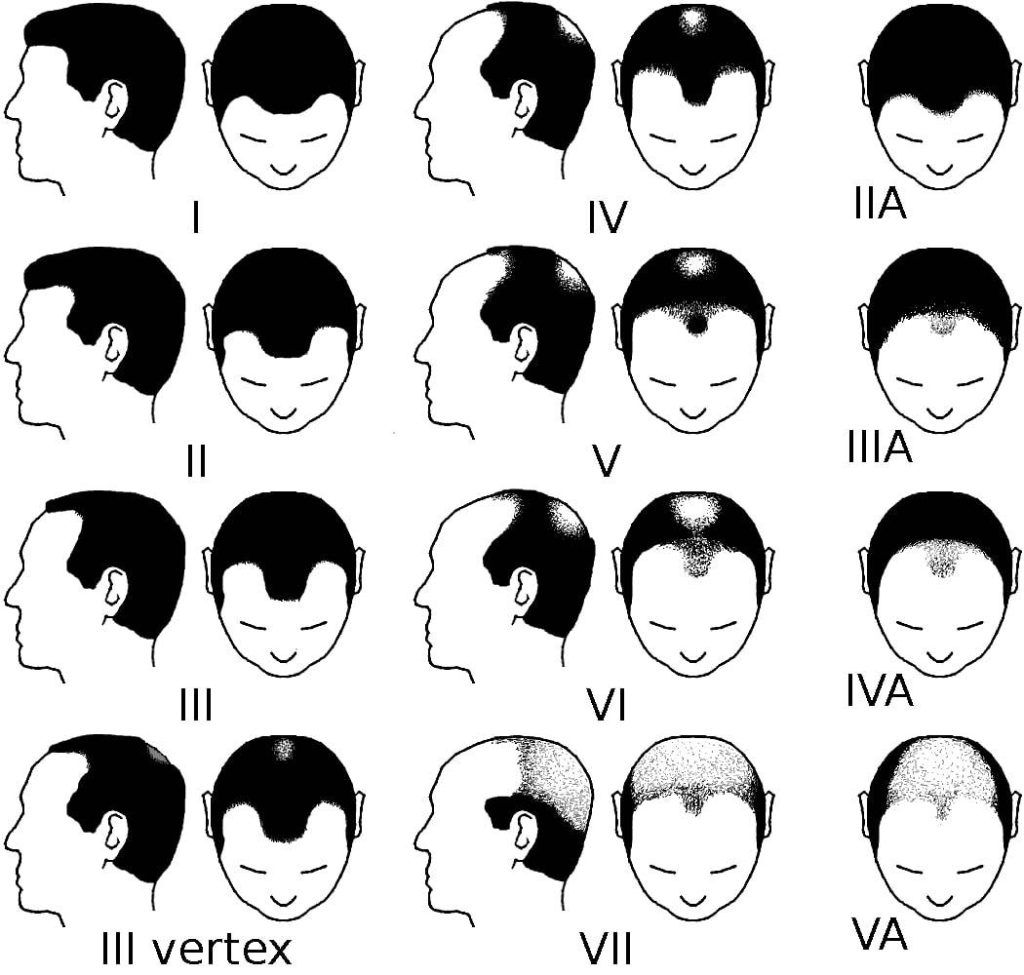
Norwood-Hamilton Scale
The most common system for categorizing hair loss stages in men is the Norwood-Hamilton scale
The Norwood-Hamilton scale categorizes male hair loss into seven stages, ranging from minimal hair loss to complete baldness. In the early stages, the hairline may recede slightly and the hair on the crown of the head may start to thin. As hair loss progresses, the hairline may continue to recede and the bald area on the crown may become larger. In the most advanced stages, only a band of hair around the sides and back of the head remains, while the top and front of the scalp are completely bald.
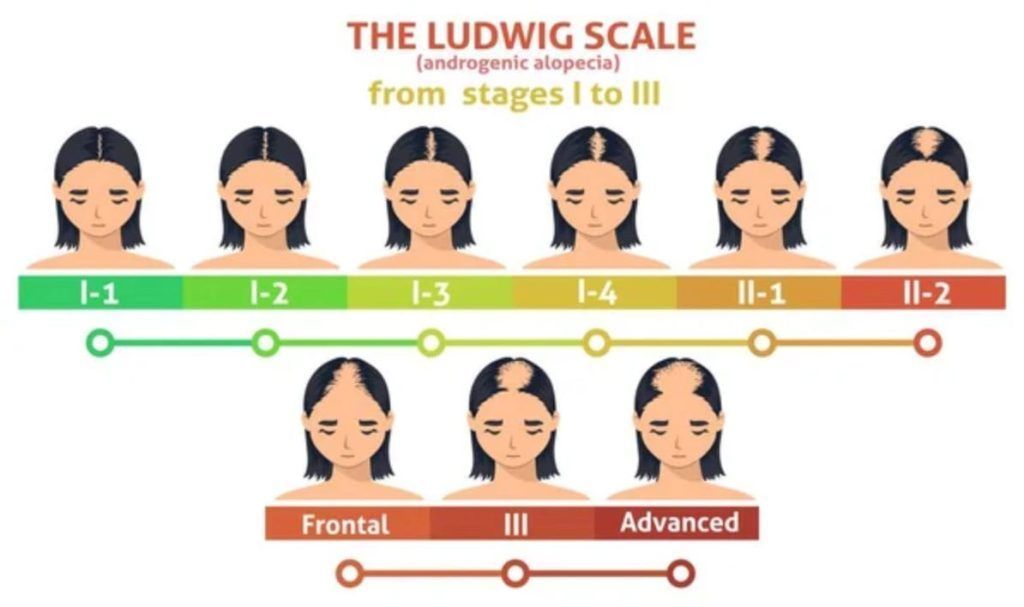
The Ludwig Scale
The most common system for categorizing hair loss stages in women is the Ludwig scale
The Ludwig scale categorises female hair loss into three stages, ranging from mild to severe. In the early stages, the hair may start to thin on the top of the head, but the hairline usually remains intact. In more advanced stages, the hair may become noticeably thinner and the scalp may become more visible. In the most severe stage, only a thin band of hair remains around the sides and back of the head.
Hair Loss - what are the facts?
Hair loss affects both men and women in the UK, but the prevalence and causes can differ between the sexes. Male pattern baldness is the most common form of hair loss in men, affecting up to 50% of men over the age of 50. Female pattern hair loss affects around 50% of women over the age of 65, but can also occur in younger women.
Hair loss can be caused by a variety of factors, including genetics, hormonal changes, stress, medical conditions, and certain medications. In the UK, over 7 million people are affected by hair loss, with men more commonly affected than women.
The hair loss industry in the UK is worth over £1.5 billion annually, with many people seeking hair loss treatments and solutions. Hair transplant surgery is a popular and effective treatment for hair loss in the UK, with many clinics offering FUE and FUT techniques to provide natural-looking, permanent results.
Overall, hair loss is a common issue in the UK affecting millions of people, but with advancements in technology and treatments, there are now many effective solutions available for both men and women.
How much does a hair transplant cost in London?
The cost of a hair transplant can vary depending on several factors, including the extent of hair loss, the technique used.
Our most common hair transplant procedure is fue and on average, prices range from £3,000 to £6,000 for most hair transplants. Some more complex cases that require a large number of grafts and need to be performed over 2 sessions typically cost between £8,000 – £10,000.
How long do hair transplants last?
Hair transplants are generally considered a permanent solution for hair loss. The transplanted hair follicles are typically resistant to the effects of pattern baldness or thinning, which means they are genetically programmed to continue growing hair in the recipient area for the long term.
Once the transplanted hair follicles have taken root and started to grow, they should continue to produce hair that grows naturally and lasts indefinitely. This means that the results of a hair transplant can be long-lasting. In general, you should expect to see new hair growth around 3 months after your hair transplant. After 6-12 months, you can expect to see thicker hair growth and your new grafts will take on a more natural appearance. After 12 months, the full results of you hair transplant should be visible. However, it's important to note that hair loss can still occur in areas that were not treated with a hair transplant. The progression of hair loss in non-transplanted areas may continue over time, which can create a contrast between the transplanted hair and the surrounding natural hair. To maintain a consistent and balanced appearance, additional hair transplant sessions may be required in the future.
It's also worth mentioning that the success and longevity of a hair transplant can vary from person to person. Factors such as the skill and experience of the surgeon, the quality of the donor hair, and the individual's overall health and response to the procedure can influence the long-term results.
To ensure the best possible outcome and maximise the longevity of a hair transplant, it's crucial to follow post-operative care instructions, maintain a healthy lifestyle, and manage any underlying conditions that may contribute to hair loss. Regular follow-up appointments with your hair transplant specialist can also help monitor the results and address any concerns.
Is a hair transplant safe?
Hair transplants are generally considered safe when performed by a qualified and experienced surgeon in a reputable clinic or hospital. As with any surgical procedure, there are some risks and potential complications associated with hair transplants, but these are generally rare and can be minimised through careful planning and preparation.
Some of the risks and potential complications associated with hair transplants include infection, bleeding, scarring, nerve damage, and poor healing. However, these risks can be minimized through proper preparation, including pre-operative testing, careful planning of the procedure, and post-operative care and monitoring.
To ensure the safety of the procedure, it's important to choose a qualified and experienced surgeon who has a proven track record of success with hair transplant procedures. Patients should also ensure that the clinic or hospital where the procedure is performed is properly equipped and staffed to handle any potential complications that may arise.
Can you get a hair transplant on the NHS?
In general, hair transplants are considered cosmetic procedures and are not typically available on the National Health Service (NHS) in the UK. This means that patients who wish to undergo a hair transplant will usually need to seek treatment from a private clinic and pay for the procedure themselves.
There may be some exceptions where a hair transplant may be deemed medically necessary and therefore may be available on the NHS. For example, in cases where hair loss is caused by a medical condition such as alopecia areata or scarring alopecia, or as a result of medical treatments such as chemotherapy, a hair transplant may be considered as a reconstructive procedure and may be available on the NHS.
However, in most cases, hair transplants are considered cosmetic and therefore not covered by the NHS. Patients who are considering a hair transplant and are unsure about the cost or availability of the procedure should speak to their GP or a qualified hair transplant specialist for more information.
Can you get more than one hair transplant?
Yes, it is possible to undergo more than one hair transplant procedure if needed. The decision to undergo a second or subsequent hair transplant will depend on several factors, including the extent of hair loss, the amount of donor hair available, and the patient's goals and expectations.
In some cases, a patient may not achieve the desired results with a single hair transplant and may need to undergo additional procedures to achieve the desired density and coverage. Alternatively, a patient may experience continued hair loss after the initial transplant and may need to undergo a second procedure to maintain their hairline and density.
It's important to note that undergoing multiple hair transplant procedures can be more challenging and complex than a single procedure, and may require careful planning and coordination with a qualified and experienced hair transplant surgeon. Patients who are considering multiple hair transplant procedures should discuss their options with their surgeon and carefully consider the risks and benefits of each procedure before proceeding.
Which age is best for a hair transplant?
One of the best things about hair transplant treatment is that it is available to a wide range of individuals regardless of age, gender or ethnicity. There is no universal right age to get a hair transplant, although in order to see the most effective results, it is recommended to get a hair transplant when the pattern of hair loss has stabilised. This means that the hair loss has significantly slowed down or stopped progressing. Hair transplants performed before hair loss stabilization may result in an unnatural appearance or require additional procedures in the future to address ongoing hair loss.
The success of a hair transplant relies on having an adequate supply of donor hair, which is typically taken from the back or sides of the scalp. Younger individuals may have a better donor hair supply since their hair is usually denser and less affected by the effects of androgenetic alopecia (pattern baldness).
It's important to have realistic expectations about the outcome of a hair transplant. The procedure can restore hair density and improve the appearance of thinning areas, but it may not achieve the same density as a full head of natural hair. Discussing your expectations with a qualified hair transplant specialist can help determine if the procedure is suitable for you at your current age.
Hair loss can have a significant psychological impact on individuals, affecting their self-esteem and quality of life. If hair loss is causing emotional distress, then it is better not to delay getting a hair transplant to a hair transplant to help restore confidence and improve well-being.
Ultimately, the decision to undergo a hair transplant should be made in consultation with a qualified hair transplant specialist. They can evaluate your individual circumstances, assess the stability of your hair loss, and provide personalised recommendations based on your specific needs and goals.


